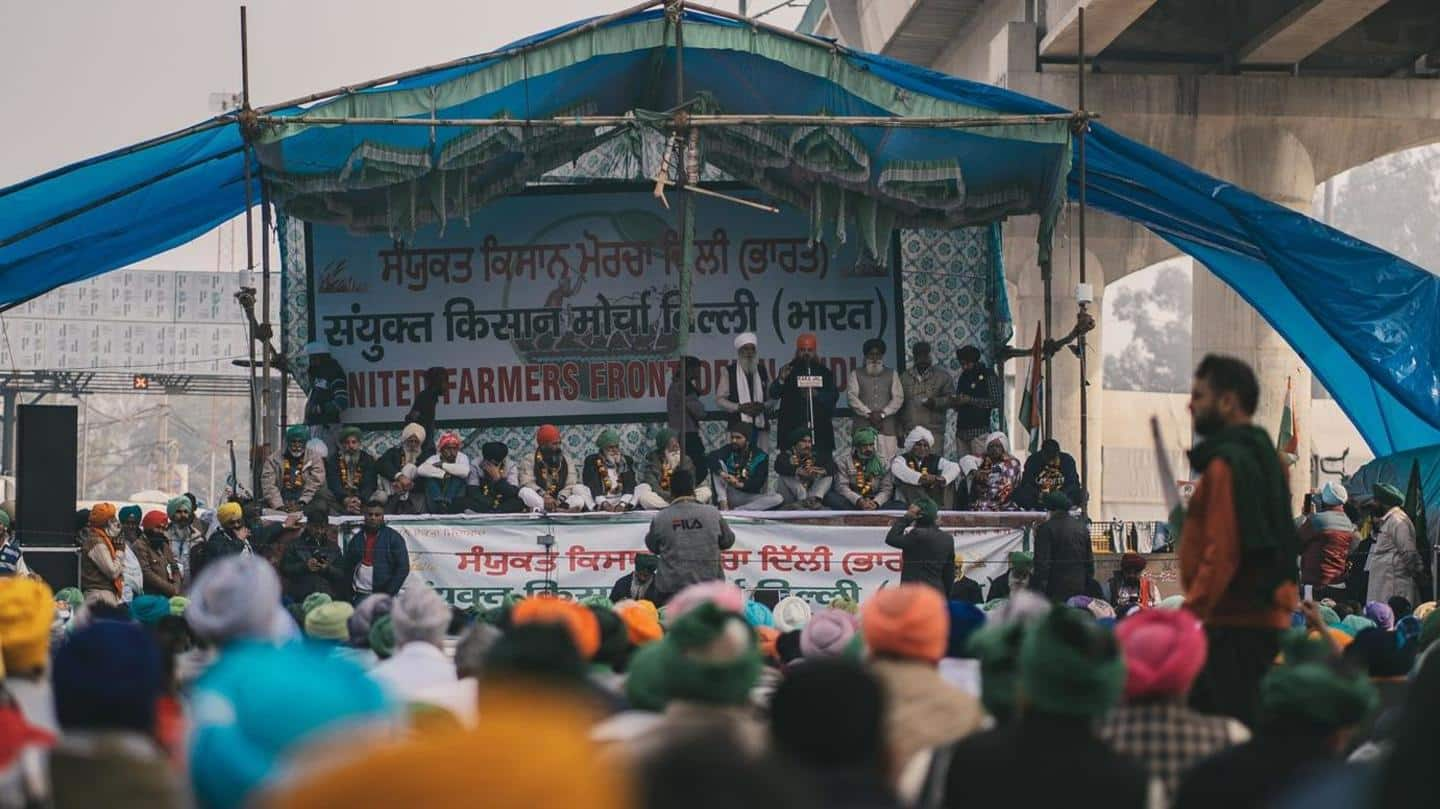
Did Modi government err in withdrawing the three farm laws?
What's the story
The Supreme Court-appointed committee to study the three, now-repealed central agricultural laws was in favor of not repealing them completely. Instead, it suggested giving states the right to purchase crops at fixed prices and abolishing the Essential Commodities Act. Around 85.7% of the farmer organizations, representing over 3.3 crore Farmers, supported the farm laws, said the committee's report, which was made public on Monday.
Context
Why does this story matter?
In November 2021, Prime Minister Narendra Modi announced the withdrawal of the three farm laws that had remained at the center of controversy for over one year. The three laws included the Farmers (Empowerment and Protection) Agreement of Price Assurance and Farm Services Act, 2020, the Farmers' Produce Trade and Commerce (Promotion and Facilitation) Act, 2020, and the Essential Commodities (Amendment) Act, 2020.
Support
85.7% farmer organizations were in support of farm laws
The committee had invited 266 farmer organizations, including the protesting farm unions, for discussions. However, the protesting farm organizations declined the invitations. "The bilateral interactions of the committee with the stakeholders demonstrated that only 13.3% of the stakeholders were not in favor of the three farm laws. Around 85.7% of the farmer organizations representing around 3.3 crore farmers supported the laws," its report stated.
Elections
Withdrawal didn't help in elections
It was alleged that the decision to withdraw the farm laws was taken in wake of the Assembly elections in Punjab and Uttar Pradesh, where most of the protesting farmers were from. While the BJP managed to retain power in UP, it failed to convince the voters in Punjab and could only win two out of the 73 seats in contested on.
Information
Centre failed to explain the benefits to some farmers
Following the farm laws withdrawal announcement, Union Agriculture Minister Narendra Singh Tomar had said the intention behind them was to bring revolutionary changes in the farmers' lives but the government failed to explain their benefits to some farmers. While a section of the farmers was happy with the government's move, a lot of the smaller farmers across the country apparently became the biggest losers.
Benefits
How farm laws could have benefited farmers?
According to the government, the farm laws were aimed at getting rid of middlemen and shifting the terms in favor of the farmers. The Farmers' Produce Trade and Commerce (Promotion and Facilitation) Act, 2020, was brought in to facilitate barrier-free trade outside the markets. These markets, where the farm produce was sold, were under the different state Agriculture Produce Market Committees (APMC) laws.
APMC rules
Regulations restricted farmers to local APMCs
Under the APMC regulations, farmers can only sell their produce to licensed middlemen in notified markets, usually in the area same as where the farmers reside. This was seen as a hindrance to the farmers' ability to sell their harvest outside their local APMCs. The new laws would have permitted them to sell in an open market.
Prices
Better prices directly from merchants
The Farmers (Empowerment and Protection) Agreement on Price Assurance and Farm Services Act, 2020, defined a framework for contract farming while the Essential Commodities (Amendment) Act, 2020, removed stock limits on agricultural produce to enable merchants to directly purchase produce from farmers. This would have enabled them to get a better price directly from the merchants without any middlemen.
Concerns
What were the farmers' concerns?
The farmers feared the new laws would usher big corporate groups into agriculture produce markets that could create monopolies and allow them to fix prices at low levels. There were concerns the government would eventually do away with the minimum support price (MSP). Under the new farm laws, traders weren't required to pay any fees, which the farmers feared would break down traditional markets.
Talks
Several rounds of talks failed
Several rounds of talks between the government and the farmers failed to end the deadlock between the two sides. The government had also proposed to suspend the laws for 18 months and form a committee in the meantime to suggest changes to the laws. It also offered to provide a written guarantee to the farmers that the MSP will stay.
Information
Farmers rejected all proposals
However, the farmer leaders rejected all the proposals from the Centre and continued their demand for the complete rollback of the three farm laws, claiming that the new laws will make them vulnerable to big corporates.